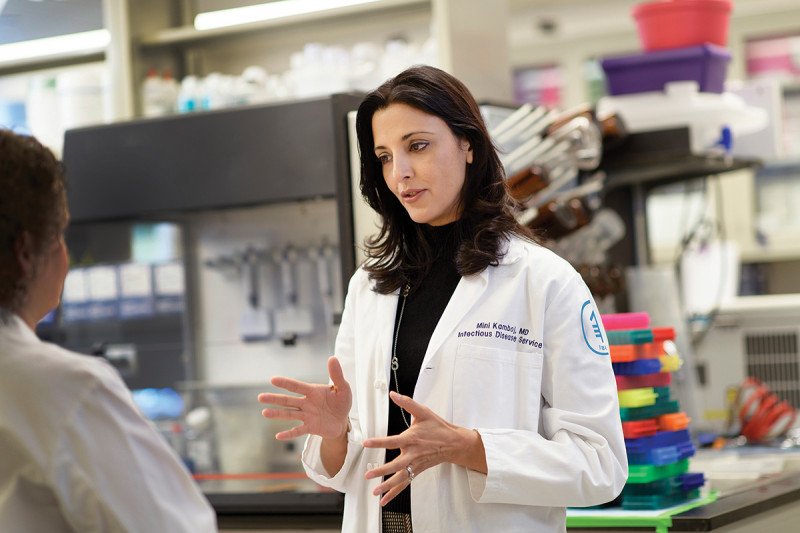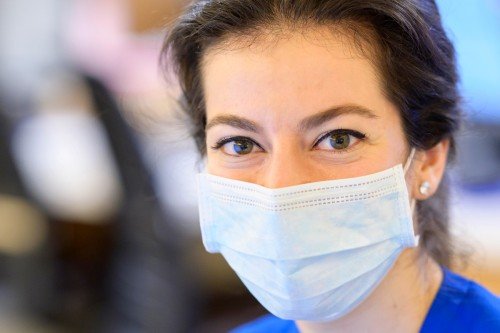
By Jim Stallard
This story was updated on April 27, 2020.
COVID-19 emerged as a major threat to public health in the United States in early 2020. Memorial Sloan Kettering Chief Medical Epidemiologist and infectious disease expert Mini Kamboj shares some facts about COVID-19, what people with cancer should know, and how MSK is keeping our patients and staff safe.
What are coronaviruses, and what is different about COVID-19?
Coronaviruses make up a large family of viruses that have been around for years. They were first identified and described in the 1960s. I tell my patients they probably have already encountered a coronavirus at some point in their lives.
The COVID-19 coronavirus is a new strain that has the potential to cause more severe illness. It is thought to have originated in animals before spreading to humans, similar to two other well-known coronaviruses, SARS (severe acute respiratory syndrome) and MERS (Middle East respiratory syndrome). COVID-19 was first identified in humans in Wuhan, China, in 2019.
How does COVID-19 spread?
COVID-19 primarily spreads from person to person through droplets when a person with it coughs or sneezes close to another person. This is the same way the common cold or flu spreads.
What are the signs of COVID-19?
COVID-19 causes cold or flu-like symptoms. These may include fever, cough, or difficulty breathing. Some people also report the loss of a sense of taste or smell, feeling achy, headache, and diarrhea. It can cause serious problems, such as pneumonia and even death, especially in older people and people with other health problems, including cancer.
With community spread of COVID-19, what can I do to keep myself safe?
The best way is to limit exposure to the virus by staying home and avoiding gatherings. If you go outside, keep a safe distance from other people, at least six feet. Wash your hands frequently and disinfect areas that you touch often. If you start having symptoms of COVID-19, call your doctor for guidance on the next step. If someone in your household has symptoms, maintain a safe distance from them, preferably in a separate room. At MSK and other hospitals, some appointments may be canceled or postponed. This is for patients’ own safety.
Should my healthcare provider always wear a mask?
We’re telling all MSK staff members who are working in our clinical locations that they are required to wear a mask throughout their entire shift. There are several different types of masks, and the specific type we require our staff to wear depends on how closely the staff member is interacting with patients, including COVID-19 patients, and what procedures they may be doing.
At the same time, we remind both staff and patients that masks are not a substitute for essential practices, like washing your hands, and taking other precautions. People should not have a false sense of security because they are wearing a mask. Anyone with cold or flu-like symptoms should stay home to protect others.
Are there special concerns for people with cancer?
People with cancer often have weakened immune systems. This is referred to as being immunocompromised. This is usually due to treatment for their cancer, such as a bone marrow transplant for blood cancer or chemotherapy for certain types of leukemia. But people can also become immunocompromised from radiation therapy or surgery. Having a weak immune system makes it harder for the body to fight off diseases and infections, including the common cold, flu, COVID-19, and more.
MSK staff are highly trained at screening for and managing infectious diseases, such as COVID-19. We are taking extensive precautions to protect our patients by minimizing their risk of exposure to the virus and ensuring that our doctors and nurses are healthy and available to care for them.



